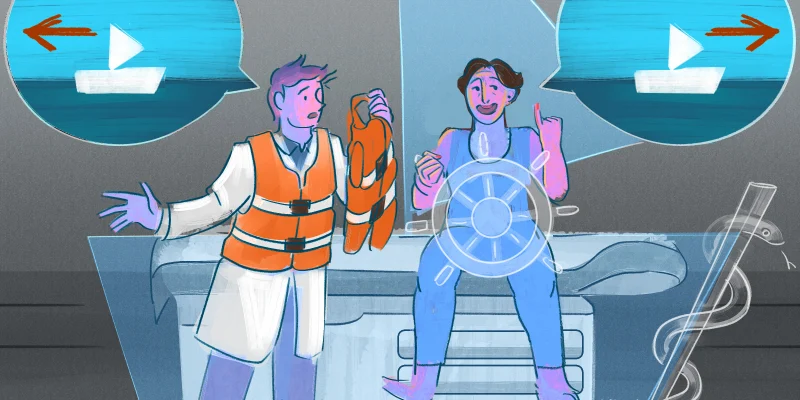 We all want the best for our patients. As such, we do our best to care for them.
We all want the best for our patients. As such, we do our best to care for them.
It is why that we physicians—even though some of us have lost such zeal—gave the ubiquitous reason for going into medicine: to help people. The definition of “helping people” is obviously quite loose, but many outside entities have taken it upon themselves in recent years to ensure we are held to a specific standard in such efforts. They refer to it as “quality” but fail to articulate what quality care is beyond a set of individual metrics, many of which have no actual bearing on patient outcomes.
So whose job is it to ensure that proper care is provided?
Quality has largely become an alternate phrase for evidence-based medicine. Very few of us take issue with providing scientifically proven diagnostic and treatment interventions for our patients. We then commonly and understandably bristle at others trying to micro-manage such efforts, especially in those few cases where the individual patient’s needs necessitate a different approach. As the quality/evidence-based guru Dr. Brent James likes to point out, you need to understand what the standard of care is before you can recognize when it is appropriate to deviate from that standard. Medical systems, third-party payers, and government regulators (among others) try to dictate what proper care means. But individual interactions aren’t a significant problem with the real quality of care provided.
Despite this, these interactions are what our systemic and individual “quality" of care provided is based on—both patient-physician interactions and a system’s measure based on the summation of those individual metrics (as is also our malpractice system). Individual clinicians are held accountable for the sins of the broken national system. I have been exploring Victor Fuchs’s evaluation of the efficiency of America’s health care system in some previous posts, and he convincingly poses that it is our macro level actions (allocation of resources, etc.) as opposed to our micro level interactions (patient-physician interactions) that contributes most to our lower life-expectancy and other poor reflections on our health as a country. While hospital and clinic systems are held to certain standards, these specifications largely originate from the sum of the individual actions instead of the improvements that could be provided by these systems. This then leads to administrators dictating how physicians should act and what we should do, a truly unsustainable and unsatisfying proposition for all. It therefore makes no sense as to why third-party entities should be telling physicians how to practice.
Who then ensures individual systems are acting appropriately, as this is the more important question? This is mainly a rhetorical question as I do not have any answers. There is also the challenge (and likelihood) that any further scrutiny or accountability placed on systems would then fall again to individual clinicians, but what if incentives and behavioral “nudges” were implemented to encourage broader organizations to work on systemic issues? Certainly the promise of accountable care organizations (ACOs) holds a similar goal, but the metrics by which they have been evaluated still focus too much on the individual interactions. (It is worth noting that the most successful ACOs have been run by physicians, a reminder that clinicians are in fact best equipped to improve all levels of care).
This may sound to many as a potential for even more physician scrutiny, more prior authorizations, more power to non-medical entities that would trickle down from administration. But it more likely represents an increased ability to help our patients who need it most through more effective allocation of organizational resources. Larger entities should be held accountable for their actions, which is the bigger problem in U.S. health care, than all the effort spent on micro-managing physicians actions.
What do you, dear reader, think should be done to shift this focus?
Dr. Kyle Bradford Jones is a board-certified family physician at the University of Utah School of Medicine. He practices at the Neurobehavior HOME Program, a patient-centered medical home for individuals with developmental disabilities. He is very interested in how technology and social media can be used to improve overall health and clinical care.
Dr. Jones is a 2018–2019 Doximity Author.
Image by Fanatic Studio/ gettyimages







